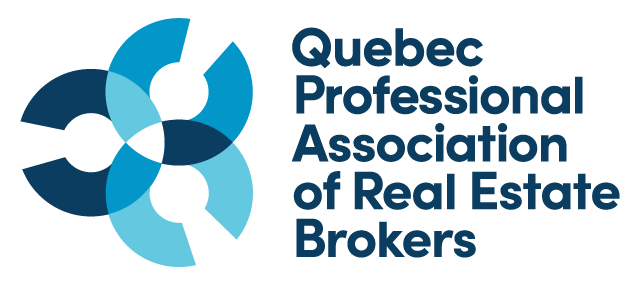How will Bill 16 impact the real estate market?
Adopted in December 2019, Bill 16 aims to improve condominium management in Quebec. This reform, the most significant since 1994, introduces major changes that will affect prospective buyers, owners, and investors in divided co-ownership. In this article, we will explore its impacts on the real estate market.

Background to Bill 16
Bill 16 was introduced at a time when the real estate market was experiencing strong growth. At the time, many buyers and co-owners considered condo fees to be disproportionate and criticized a lack of transparency in the management of funds.
As the number of condominiums continued to grow, the challenges of managing them became increasingly complex. Bill 16 therefore aims to establish clearer rules and strengthen the mechanisms that protect co-owners. Did you know? One in nine Quebec households live in a condominium. In Montreal, this number rises to one in five.
Objective of Bill 16
Its primary goal is to ensure better property management, protect co-owners, and improve the transparency and governance of co-ownership syndicates. By focusing on prevention and long-term planning, Bill 16 seeks to minimize the risk of litigation while ensuring the sustainability and value of co-ownership properties. Some provisions of Bill 16 are already in effect, while others will come into force in 2025.
Key measures of the draft regulation
The draft regulation addresses the implementation of two key measures of Bill 16: the maintenance logbook and the contingency fund study. It also covers critical issues such as the syndicate certificate and deposit protection for new condominiums.
Maintenance logbook
This mandatory document details all the past and upcoming maintenance and repair activities on the property. It facilitates renovation planning, helps prevent unexpected issues, and ensures a transparent and efficient management. Going forward, the logbook must be prepared by a qualified professional and updated annually.
Contingency fund study
This analysis, which must also be conducted by a professional and regularly updated, estimates the short, medium, and long-term costs of major repairs of common areas. It makes it possible to determine the contingency fund necessary to ensure timely repairs, while ensuring that co-owners have sufficient resources to maintain the property and prevent its deterioration.
Syndicate certificate
This certificate provides details about the property’s condition, the financial health of the syndicate, and the insurance policies in effect. It provides clear and transparent information to prospective buyers to help them make informed decisions. The certificate must be provided within 15 days upon the request of a co-owner wishing to sell their unit.
Deposit protection for new condominiums
The draft regulation also introduces deposit protection by means of a trust account. This mechanism secures downpayments made for the purchase of a new condominium in the event of a default by the developer. It offers additional legal protection and reduces the financial risk for new owners.
Impacts on the residential real estate market
The implementation of Bill 16 will inevitably affect the real estate market. In the short term, co-owners may face some financial challenges, while in the medium and long term, the proposed changes could enhance stability and transparency. Here’s an overview of the expected impacts.
Improved condominium management in the medium and long term
The enhanced financial transparency of co-ownership properties introduced by Bill 16 could boost buyer and investor confidence. By knowing that properties are well managed and that funds are available for necessary repairs, they will be more inclined to invest in a condominium.
The new rules regarding the maintenance logbook and contingency fund study should improve maintenance and renovation planning. This could help reduce unexpected costs for co-owners and prevent sudden increases in condo fees. Ultimately, this may make condominiums more attractive and affordable for a broader range of buyers.
Fees expected to increase in the short term
However, the more rigorous financial management and maintenance planning in anticipation of the implementation of Bill 16 will likely lead to an increase in condo fees in the short term. According to the latest census statistics, 6.3% of available homes on the market across the province are in need of major repairs. In the Montreal region, this number rises to 8.4 per cent.
A pre-pandemic study conducted by the Association des professionnels de la construction et de l’habitation du Québec (APCHQ) found that over 50% of condominiums were built before the 2000s, and that 31% now require renovations.
According to calculations by the QPAREB Market Analysis Department, while condo fees in Quebec have, on average, increased by 7% per year between 2020 and 2024, they have been more significant since 2021. For instance, average annual condo fees rose from $2,656 in 2020 to $3,713 in 2024. It is true that this increase occurred in an inflationary context in 2022. Nevertheless, it still far exceeds overall inflation growth over the past five years.
Condo fees have thus risen significantly even before the full implementation of the legislative changes. This suggests that the increase in condo fees reflects a proactive adaptation to future legal obligations. At the end of 2019, the ministère des Affaires municipales et de l’Habitation du Québec estimated that the additional financial burden for co-owners would range between $144 and $300 per year.
How Bill 16 will impact new condominiums
The fact that deposits will be protected in a trust account could encourage more people to buy a new condominium. This measure provides additional legal protection by reducing the financial risks associated with purchasing a new build. This could boost demand for new real estate projects and support market growth.
Furthermore, the new rules could improve the finances of co-ownership syndicates. By requiring regular contingency fund studies and proactive property management, syndicates will be better prepared to handle unexpected expenses and necessary repairs. This approach will strengthen their financial stability and reduce the risk of insolvency.
Quebec’s Bill 16: an important step toward improved condominium management
Bill 16 represents a significant step forward for the condominium market in Quebec. While it does present short-term challenges, it enforces more transparent and rigorous property management practices.
Whether you are a buyer, owner, or investor, understanding these changes will help you better prepare for the law’s implementation and take full advantage of its benefits. If you are interested in a condominium, seriously consider working with a real estate broker who will help you assess its financial health.
For more information on Bill 16, listen to the Real Estate in Motion podcast presented by the Quebec Professional Association of Real Estate Brokers (QPAREB).
Article written in collaboration with:


See also:
Divided vs. Undivided Co-Ownership: What’s the Difference?
 The Largest Number of Homes for Sale
The Largest Number of Homes for Sale



